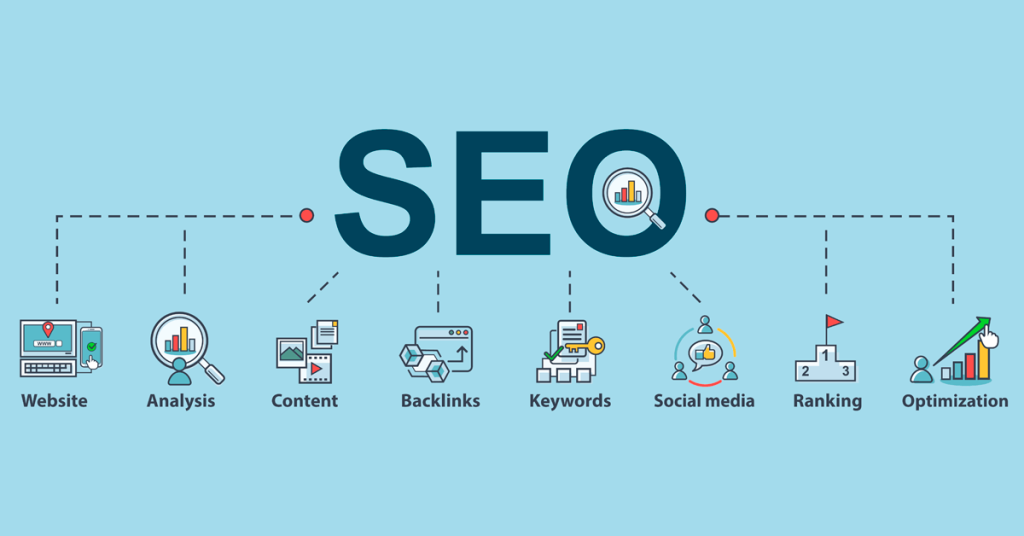
Beyond Keywords: Unraveling the Secrets of Effective Search Engine Optimization in Digital Marketing
By Udit Agarwal

In the vast realm of digital marketing, Search Engine Optimization (SEO) stands as the bedrock, shaping businesses’ online visibility and success. While keywords have traditionally been the focus of SEO strategies, the landscape is evolving, demanding a deeper understanding of the intricate mechanisms that drive search engine rankings. Let’s delve into the secrets of effective SEO that extend beyond keywords, propelling businesses to new heights in the digital sphere.
1. Content Quality and Relevance:
Quality content is the linchpin of effective Search Engine Optimization. Search engines increasingly prioritize content that is well-written, relevant, and valuable to users. Crafting engaging, informative, and shareable content positions businesses as authoritative sources in their respective domains.
2. User Experience (UX) Optimization:
User experience is a crucial factor in SEO success. Search engines consider how users interact with a website, including page load speed, mobile responsiveness, and overall site usability. A seamless and enjoyable user experience contributes to higher rankings.
3. Mobile-First Indexing:
With most internet users accessing content on mobile devices, search engines now prioritize mobile-first indexing. Websites optimized for mobile devices receive preference in search rankings. Businesses must ensure their websites are responsive and provide an optimal experience on smartphones and tablets.
4. Technical SEO Excellence:
Technical Search Engine Optimization aspects play a pivotal role in search engine rankings. This includes optimizing website structure, fixing broken links, ensuring proper URL structures, and implementing schema markup. A technically sound website is more likely to receive favorable rankings.
5. Backlink Quality over Quantity:
While backlinks remain critical, the emphasis has shifted from quantity to quality. High-quality backlinks from authoritative websites carry more weight in search algorithms. Building a diverse, natural backlink profile contributes to enhanced SEO performance.
6. Voice Search Optimization:
The rise of voice-activated devices has given prominence to voice search. Optimizing content for conversational queries and long-tail keywords aligns with the changing search behavior of users. Businesses that adapt to voice search trends enhance their visibility in search results.

7. Local Search Engine Optimization for Geographic Relevance:
For businesses with a physical presence, local SEO is indispensable. Optimizing for local searches, including Google My Business optimization, localized content, and garnering positive reviews, ensures that businesses appear prominently in local search results.
8. User Intent Understanding:
Beyond keywords, understanding user intent is critical. Search engines aim to deliver results that best match user queries. Businesses must tailor their content to align with the intent behind search queries, providing solutions and answers that resonate with user needs.
Also Read: The Role of Agile Methodology in Application Development Support
9. Featured Snippets and Position Zero:
Featured snippets, or position zero, are coveted spots in search results. Creating content that directly answers commonly asked questions or provides concise information increases the likelihood of earning featured snippet placements, enhancing visibility.
10. Social Signals Impact:
While not a direct ranking factor, social signals indirectly influence Search Engine Optimization. Content that gains traction on social media tends to attract more visibility and engagement, signaling to search engines that the content is relevant and valuable.
Conclusion: Moving beyond traditional keyword-centric approaches, effective SEO in the digital age requires a holistic strategy that embraces content quality, user experience, technical excellence, and an understanding of evolving search trends. Businesses that unravel the secrets of influential SEO position themselves for higher search engine rankings and sustained online success. By adapting to the ever-changing digital landscape, companies can ensure their visibility and relevance in a competitive online environment, fostering growth and engagement with their target audience.